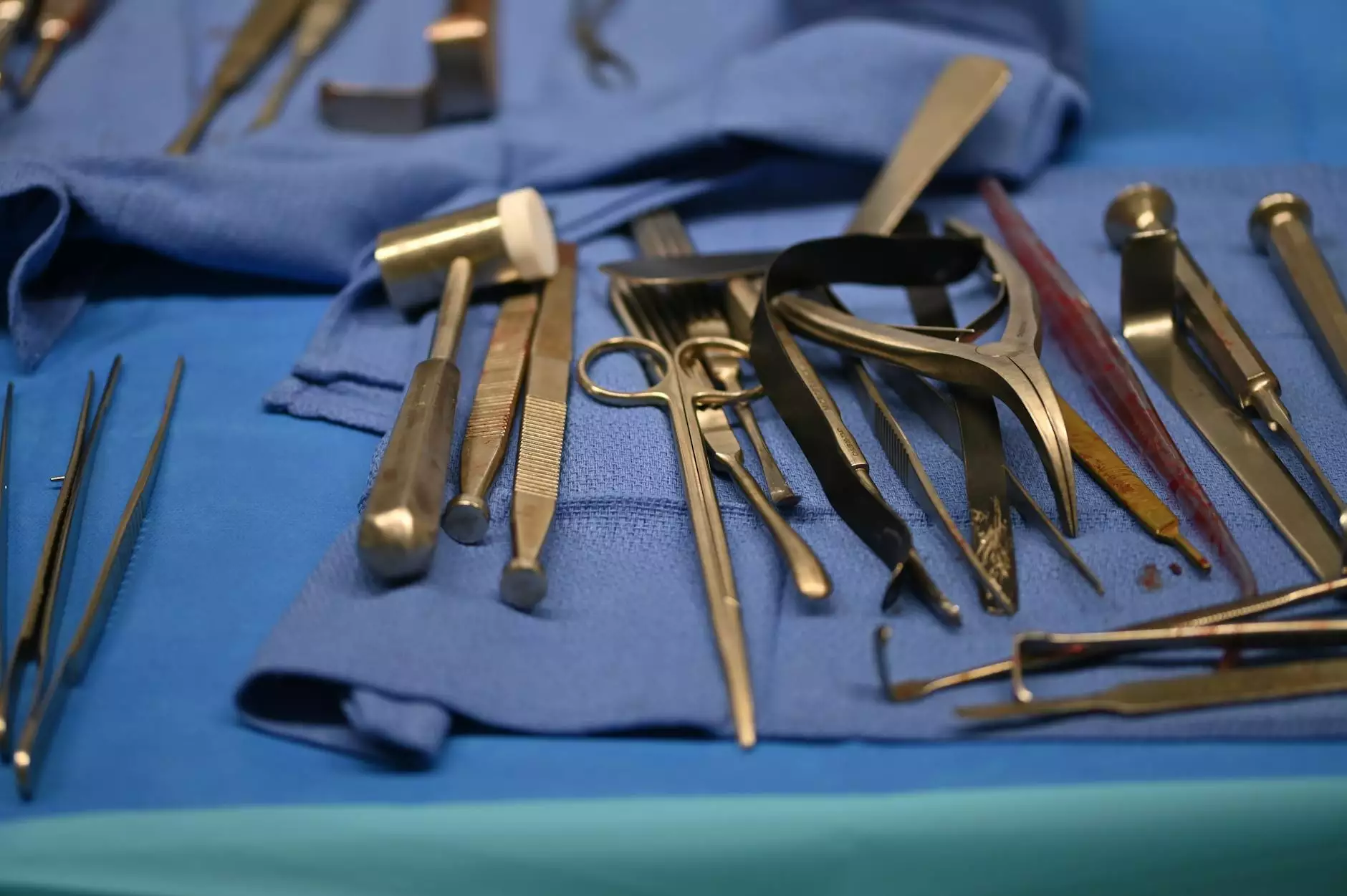Buy Surgical Instruments: A Comprehensive Guide for Healthcare Professionals

Surgical instruments play a vital role in the field of medicine, delivering precision and reliability during procedures. For healthcare professionals, understanding how to navigate the purchase of surgical instruments can make a significant difference in their practice. This article delves into the intricacies of buying surgical instruments, the types available, and key considerations that ensure you acquire the best tools for your needs.
The Importance of Quality Surgical Instruments
When it comes to performing surgical procedures, the quality of the instruments directly affects the outcomes. Here's why quality matters:
- Precision: High-quality instruments are designed for precision, providing better control and execution during surgery.
- Durability: The right materials and craftsmanship contribute to durability, reducing the need for frequent replacements.
- Safety: Well-manufactured instruments decrease the risk of accidents and complications during procedures.
- Efficiency: Skilled surgeons can work more efficiently with reliable instruments, which directly impacts patient care.
Types of Surgical Instruments You Can Buy
When you buy surgical instruments, it’s crucial to understand the variety available in the market. Here are some essential categories:
1. Cutting Instruments
These include scalpels, scissors, and surgical blades, designed to provide clean cuts with minimal tissue damage.
2. Grasping Instruments
Forceps and clamps fall under this category, essential for holding tissues or organs during surgery. Their grip and design significantly influence their functionality.
3. Hemostatic Instruments
Instruments like hemostats and clamps are used to control bleeding. They are critical in ensuring patient safety during any surgical intervention.
4. Suturing Instruments
Needles, needle holders, and sutures are crucial for closing incisions and wounds after surgery.
Where to Buy Surgical Instruments
Purchasing surgical instruments requires careful consideration. Here are the best sources:
1. Directly from Manufacturers
Buying directly from reputable manufacturers like new-medinstruments.com allows you to ensure the instruments you receive meet high standards and specifications. This is an excellent option for bulk purchases as well.
2. Medical Supply Distributors
Established medical supply distributors often carry a wide range of surgical instruments and can provide bulk discounts. Be sure to check their credentials and product reviews before making a purchase.
3. Online Marketplaces
With the growth of e-commerce, various online platforms make it easier to buy surgical instruments. However, it’s crucial to verify the credibility of the seller and consider the quality of instruments available.
4. Local Surgical Supply Shops
Supporting local businesses can be beneficial, as they often provide personalized services, including recommendations tailored to your specific needs.
Key Considerations When Buying Surgical Instruments
Before making a purchase, consider the following factors to ensure you invest in the best surgical tools:
- Quality: Always prioritize high-quality materials such as stainless steel or surgical-grade titanium to ensure longevity and reliability.
- Certifications: Look for instruments that meet international health and safety standards, such as ISO and CE certifications.
- Cost: While the price is an important factor, it’s essential to balance cost with quality. Avoid compromising on quality for lower prices.
- Supplier Reputation: Research suppliers and read reviews to find reputable sellers known for their quality products and customer service.
- Warranty and Support: Consider suppliers that offer warranties and customer support, ensuring you can address any issues post-purchase.
Maintaining Your Surgical Instruments
Investing in surgical instruments is just the beginning; maintaining them is equally essential for longevity and performance:
1. Regular Cleaning
Implement a strict cleaning protocol after each use to prevent contamination and maintain hygiene. Follow the manufacturer’s instructions for cleaning and sterilization.
2. Proper Storage
Store instruments in a dry and safe environment to prevent damage. Use designated trays or cabinets to keep them organized.
3. Routine Inspections
Conduct regular inspections to identify any wear or damage. Instruments showing signs of deterioration should be serviced or replaced promptly.
The Future of Surgical Instruments
The surgical instruments market is constantly evolving with advancements in technology. Innovations such as robotic-assisted surgery tools and minimally invasive instruments are defining future pathways in surgical care. Future trends include:
- Smart Instruments: Integration of technology allowing instruments to provide real-time feedback during procedures.
- Biodegradable Materials: An increased focus on sustainability will drive the development of biodegradable surgical tools.
- Enhanced Sterilization Techniques: Innovations that further improve the sterilization processes to ensure safety and hygienic standards.
Final Thoughts
The journey of acquiring surgical instruments is pivotal for every healthcare professional. By understanding the importance of quality, knowing where to buy surgical instruments, and paying attention to maintenance, you set yourself up for success in providing exceptional patient care. The tools you use can significantly influence the outcomes of surgical procedures, and investing in the right instruments is ultimately an investment in the health and safety of your patients.
For reliable, high-quality surgical instruments, consider new-medinstruments.com as your trusted supplier in the evolving health and medical market. Prepare yourself to enhance your surgical practices by choosing the best instruments available.
© 2023 New Medi Instruments. All rights reserved.








